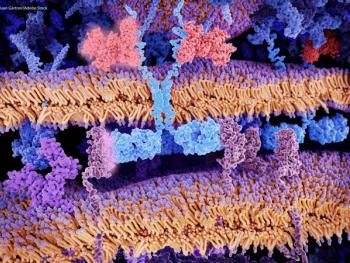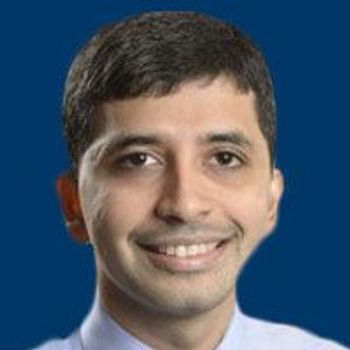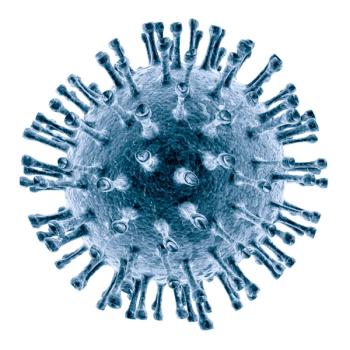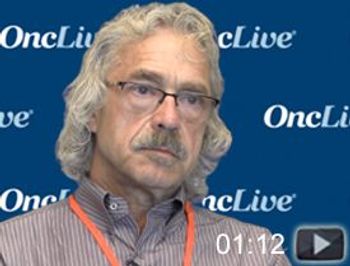
News


The evidence shows that chimeric antigen receptor (CAR) T-cell therapies are effective, but the price tags on these treatments are high and have raised concerns about how many patients will get treated. During a discussion at The American Journal of Managed Care®’s Patient-Centered Oncology Care® meeting, held Friday in Philadelphia, panelists outlined the efficacy of the 2 FDA-approved therapies, Medicare reimbursement for CAR T-cell therapies, and the pace of innovation in healthcare.

Ixazomib significantly improved progression-free survival as a first-line maintenance therapy compared with placebo in adult patients with multiple myeloma who have not undergone stem cell transplantation, meeting the primary endpoint of the phase III TOURMALINE-MM4 study.

The University of Texas MD Anderson Cancer Center and Takeda Pharmaceutical Company Limited have entered an exclusive license agreement and research agreement to develop and market chimeric antigen receptor-directed natural killer-cell therapies.

Anti-BCMA directed treatments, including CAR T-cell therapy, bispecific antibodies, and antibody-drug conjugates, have the potential to revolutionize the multiple myeloma treatment paradigm. At the 37 Annual CFS®, Sham Mailankody, MBBS, discussed the emerging BCMA-directed therapies that have shown the greatest potential.

The FDA has granted a Regenerative Medicine Advanced Therapy designation to the investigational anti-BCMA CAR T-cell therapy CT053 for the treatment of patients with relapsed/refractory multiple myeloma.

A lawsuit filed by a former executive of Juul claims they knowingly sold 1 million contaminated pods; Novartis trial for its Zolgensma gene therapy stopped amid safety concerns; charts show worsening air quality in Louisiana.


William G. Wierda, MD, PhD, discusses the evolving treatment paradigm in chronic lymphocytic leukemia and ongoing trials looking at novel approaches.

Results of a phase 1 study examining a potential gene therapy for x-linked retinitis pigmentosa showcased improvements in microperimetry and a favorable safety profile.

While antiretroviral therapy (ART) can suppress HIV infection, ART cannot completely eradicate HIV, which remains in a latent reservoir in CD4-positive T cells during treatment; discontinuation of ART leads to rapid rebound of the virus. This reservoir forms even when ART is initiated early on in the infection, and while the most widely accepted model of how the reservoir forms involves infection of a CD4-positive T cell as it transitions to a resting state, the dynamics and timing of the reservoir’s formation have been largely unknown.

The rAAV2/2-ND4 gene therapy GS010 elicited continuous bilateral improvements in BCVA from week 48 to week 96 for patients with Leber hereditary optic neuropathy.

How much do you know about the role of CAR T cells in multiple myeloma? Here's your chance to find out.

According to Jeffrey Heier, MD, RGX-314 administered by subretinal injection was well tolerated. In addition, it was associated with dose-dependent increase in ocular protein expression and evidence of clinical benefit.

Treatment with subretinal transplantation of allogeneic human retinal progenitor cells showed promising early signs of efficacy as a treatment for individuals with retinitis pigmentosa.

AAV2/5-OPTIRPE65 showed improvements in vision-guided mobility, retinal sensitivity, and foveal-driven visual function for patients with RPE65-associated retinal dystrophy.

Data from a phase 1/2a study show RGX-314, a gene therapy from RegenX, was well tolerated and improved visual acuity in patients.

Results of the phase 1 OPTIC trial reveal ADVM-022 was effective at maintaining visual acuity in patients with wet AMD with a favorable safety profile.

Speakers at AAO 2019 event describe journey leading to approval of the first gene therapy for a genetic disease.

The neoantigens found in the patients’ tumors (non-small-cell lung cancer) which were highly dissimilar were enriched for hydrophobic sequences, and correlated with survival rates after the PD-1 checkpoint therapy.

The trial, which received a $4.1 million in grants from the National Institutes of Health and Gateway for Cancer Research, combines City of Hope’s unique CAR T cell therapy with immune checkpoint inhibitors.

Eduardo Sotomayor, MD, discusses the evolution of CAR T-cell therapy, adverse events that require careful monitoring, and novel strategies under development that may mitigate toxicity and improve T-cell persistence.

CAR T cells are a more effective therapy if manufactured for patients with multiple myeloma prior to the onset of relapsed or refractory disease.

Durvalumab added to etoposide and platinum-based chemotherapy as a first-line treatment for patients with extensive-stage small cell lung cancer delays development of new lesions and improves patient-reported outcomes compared with etoposide and platinum-based therapy alone.

Phase III studies of a gene therapy for Leber Hereditary Optic Neuropathy have generated some unexpected positive findings. There is biologic plausibility to explain the data.

Researchers said Wednesday they created a second-generation chimeric antigen receptor (CAR) T-cell therapy that prevented relapse of lymphoma and leukemia and led to 100% long-term survival in early laboratory studies.

Andrew D. Zelenetz, MD, PhD, discusses the use of emerging targeted therapies in mantle cell lymphoma.

Wayne A. Marasco, MD, PhD, discusses the intricacy of engineering CAR T cells and the early data he has observed with CAR T-cell therapy in renal cell carcinoma.

Andre Goy, MD, MS, discusses cutting-edge CAR T-cell therapy and other groundbreaking investigations, as well as his thoughts on general developments in oncology and hematology.

Joshua P. Sasine, MD, PhD, spotlights some of the strategies under investigation to improve the safety and efficacy of CAR T-cell therapy in hematologic malignancies.